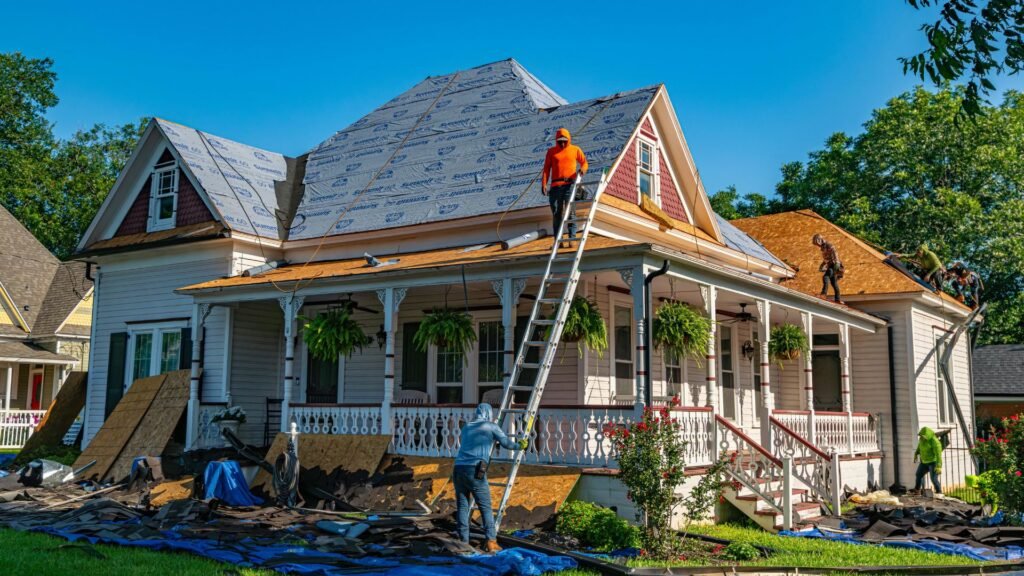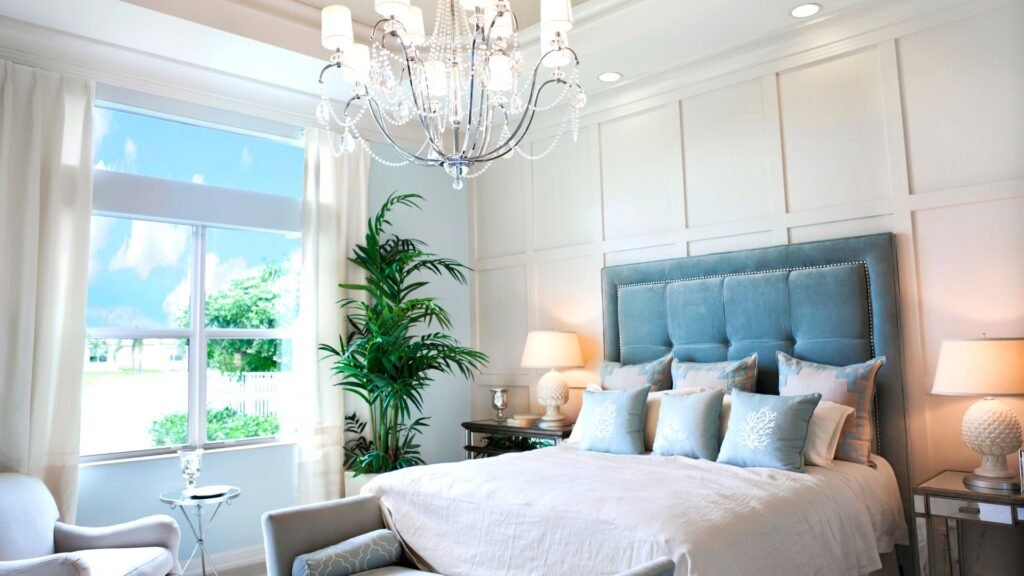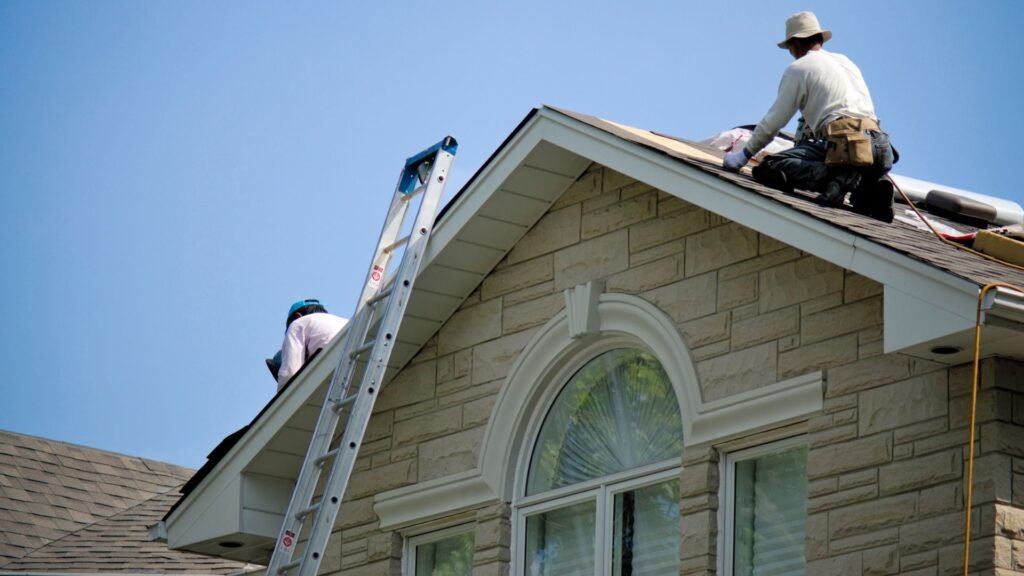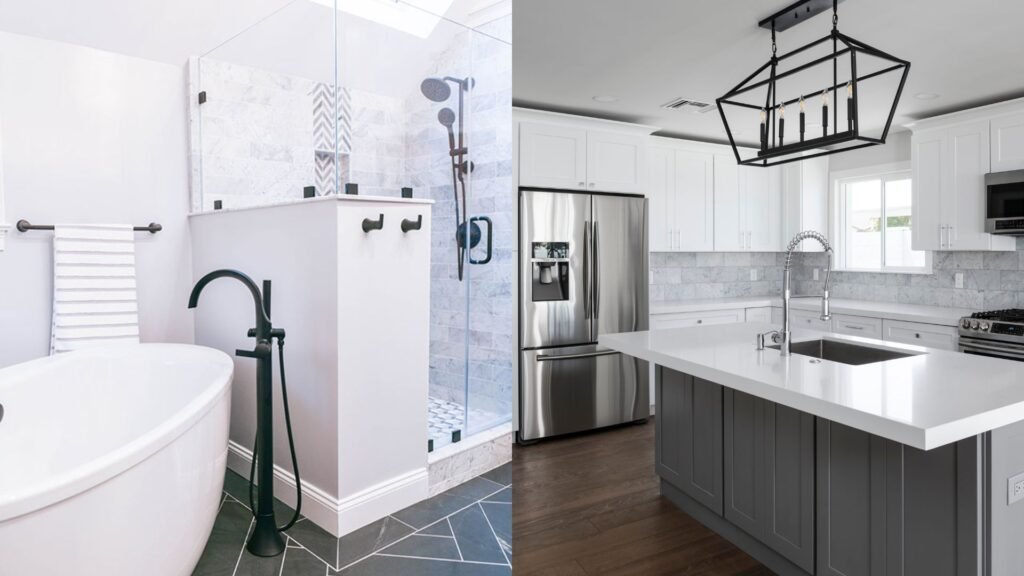Welcome to your guide on understanding new build costs in New Zealand, where we break down everything you need to know about building a home from the ground up. If you’ve ever wondered how much it really costs to turn your dream home into reality, you’re not alone, rising land prices, material shortages, and regional differences make it tricky to get a clear answer. In this post, we’ll cover the average cost of building a new house in NZ, what factors drive prices up or down, the hidden expenses many people forget, and practical ways to keep your budget under control. Whether you’re planning your first build or comparing costs against buying an existing property, this guide will give you a transparent, human explanation to help you make confident decisions.
The average new build cost in NZ ranges from $2,500 to $4,500 per square metre, depending on location, design, and materials. In 2025, building a standard 150m² home could cost between $375,000 and $675,000. Factors like land preparation, council fees, and finishes can push the price higher, while choosing standard designs and cost-effective materials can help keep expenses down.
Table of Contents
Average Cost Of Building A New Home In NZ
Building a new home in New Zealand in 2025 typically costs NZD $2,500 to $4,000 per square metre for standard or mid-range homes. High-end, architectural or luxury builds can go above NZD $5,000/m², depending on design complexity, materials, and land conditions.
For a typical 150 m² house, that means you can expect construction costs (excluding land, consents, and extras like landscaping or driveways) to fall between NZD $375,000 and $600,000. In many urban areas, especially where land is steep, preparation or retaining walls are needed, and finishes are upgraded, costs will lean toward the higher end.
Compare Costs Across Regions (Auckland vs Christchurch vs Wellington)
In Auckland, building costs are among the highest in the country. A standard home is likely to cost around NZD $3,300-$3,600/m², with site constraints, higher labour demand, and premium material use pushing figures upward.
Christchurch generally offers more affordable new build options. Costs often fall between NZD $2,800-$3,200/m², especially on flat land with fewer construction challenges.
Wellington sits in between Auckland and Christchurch, but its terrain and strict seismic standards often add complexity. Here, a mid-range home typically costs NZD $3,300-$3,800/m².
Recent Trends: Are Costs Rising, Stable, Or Falling?
Construction costs have risen significantly over the past four years, with reports showing a 44% increase nationwide across major centres like Auckland, Wellington, and Christchurch. That said, the pace of increases has recently started to slow. In 2024, annual growth in many regions dropped to around 0.7% to 2.2%, compared to the steep hikes seen in 2021 and 2022.
Some areas have been hit harder than others. For example, Dunedin experienced nearly a 47% increase since 2020, while Palmerston North rose by about 46%. Auckland also saw major growth, though the percentage change was slightly lower, the real-dollar impact was still substantial due to already high baseline costs.
What All This Means For Your Budget
If you’re planning a build, start by multiplying the average regional cost per square metre by your desired home size. Always build in a buffer of 10–20% to account for unexpected site challenges, upgraded finishes, and market shifts. And remember that per-square-metre costs don’t include essentials like land, council consent fees, landscaping, driveways, and site preparation, which can add significantly to your final spend.
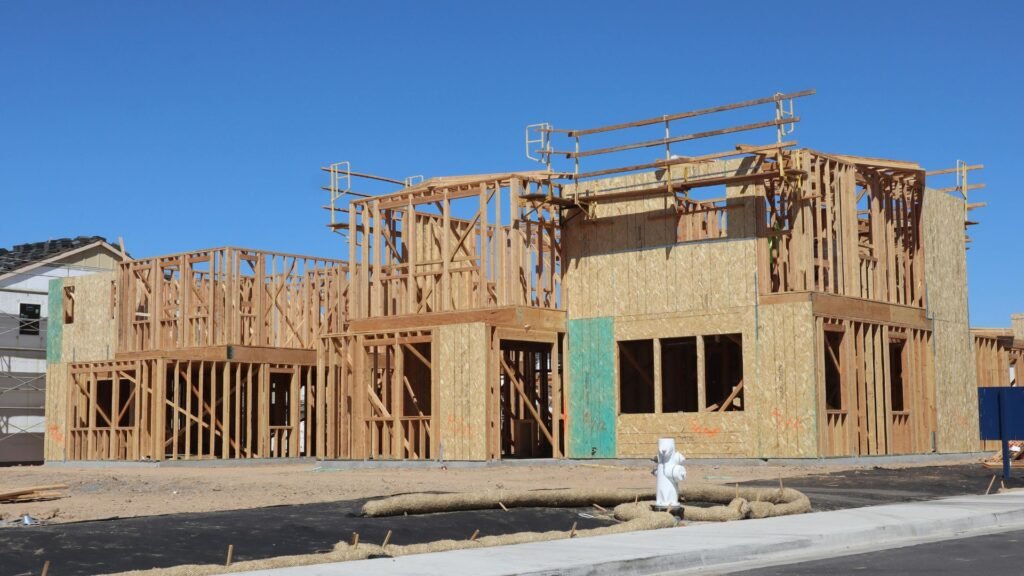
What Influences New Build Costs In NZ?
Building a new home in New Zealand comes with many variables, and understanding what drives the price can help you plan your budget more effectively. From where you build to the features you choose, every decision has an impact on your final costs. Below are the main factors you should consider.
Location: Land Prices And Regional Differences
Where you decide to build in New Zealand has a major effect on your budget. Land prices vary significantly across the country. For example, sections in Auckland and Wellington are often far more expensive than land in smaller cities such as Hamilton, Dunedin, or Invercargill. On top of the purchase price, costs for site preparation also differ by region. A flat section in Hamilton will cost far less to prepare than a sloping section in Wellington that may need retaining walls or additional earthworks.
Size And Design: Single Vs Two-Storey, Custom Vs Standard Plans
The size and layout of your home will directly influence the overall price. Larger homes naturally require more materials and labour, driving up the total cost. Two-storey homes are often more expensive to construct because of additional structural requirements and scaffolding. Design choices also matter: custom architectural plans allow for unique features but come with higher costs, while standard pre-designed plans are more budget-friendly.
Materials: Type Of Cladding, Roofing, And Finishes
The materials you choose can quickly increase or reduce your build cost. Brick cladding, high-end roofing, and imported finishes add a premium to your project, while standard cladding and locally sourced materials are more cost-effective. For instance, opting for a metal roof instead of slate can save tens of thousands of dollars. Interior finishes like flooring, cabinetry, and benchtops also vary widely in price depending on whether you pick luxury or mid-range options.
Labour Costs: Builders, Trades, And Availability
Skilled labour is one of the biggest drivers of building expenses in NZ. Builders, electricians, plumbers, and other tradespeople charge based on demand and availability in your area. Labour costs are usually higher in larger cities where demand is strong, while smaller towns may offer more competitive rates. Choosing a well-organized builder who can coordinate subcontractors efficiently often helps reduce the risk of delays and cost blowouts.
Land Preparation: Site Access, Earthworks, Drainage
Not all land is ready for building, and site preparation is an expense many new homeowners underestimate. Earthworks, soil testing, drainage, and retaining walls can add thousands to your build. If your section is difficult to access or located on a slope, expect higher costs for excavation and foundation work. By contrast, a flat, easily accessible site often requires far less preparation.
Extra Features: Garages, Landscaping, Decks, Eco-Friendly Upgrades
The final cost of your build doesn’t stop with the house itself. Extras such as double garages, decks, outdoor living areas, and landscaping can all add significant amounts to your budget. Eco-friendly upgrades like solar panels, better insulation, or energy-efficient windows cost more upfront but can save you money in the long run through lower power bills. Consider which features you need immediately and which ones you can stage for later.
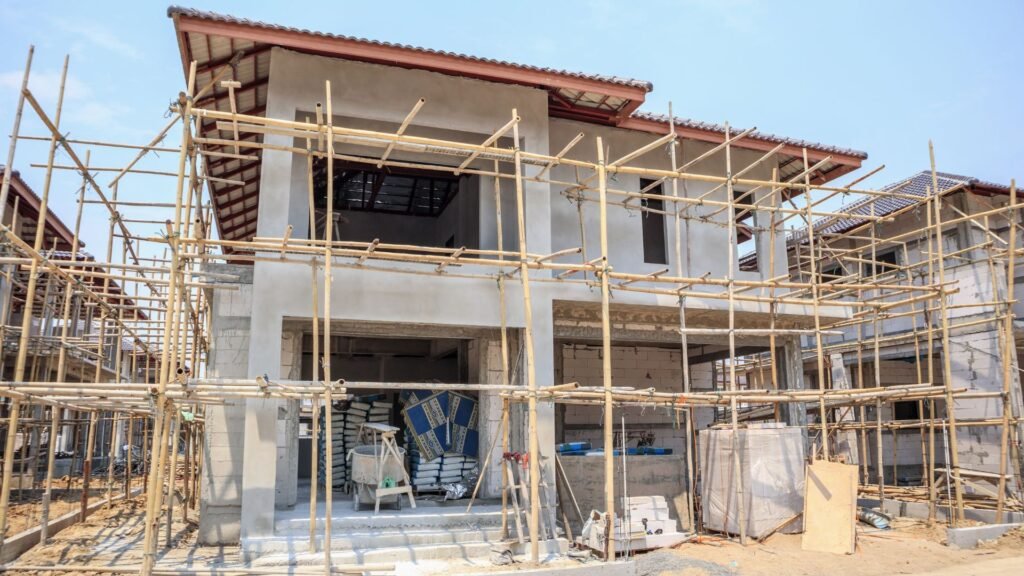
Hidden Costs People Forget
When planning a new build in New Zealand, many people focus only on the headline figures such as cost per square metre or the builder’s quoted price. While these numbers give a starting point, they often leave out a range of hidden expenses that can catch homeowners by surprise. Forgetting these costs can blow out your budget and delay your move-in date. Below are some of the most common hidden costs you need to prepare for when estimating your new build cost in NZ.
Council Consents And Permits
Every new build requires council approval to make sure the home meets local building codes and regulations. Consent fees can vary depending on the size and complexity of your project, but they often add thousands of dollars to the overall cost. It’s important to factor in both the initial application fees and any additional inspections that may be required during the construction process.
Utility Connections (Power, Water, Internet)
A brand-new site usually doesn’t come with ready-to-use utilities. You’ll need to pay for connections to power, water, and internet services. These costs depend on how close your site is to existing infrastructure. For example, connecting a rural property can cost significantly more than connecting a site in the middle of town.
Driveways, Fencing, Landscaping
Many building quotes only cover the house itself, leaving out external features. A driveway, boundary fencing, and basic landscaping can easily add tens of thousands of dollars to your final spend. Without these elements, your home may be functional but not fully livable. Including them in your budget ensures your new build feels complete from day one.
Project Management Fees
If you’re not managing the build yourself, you’ll likely hire a project manager or rely on your builder’s team. While this can save stress and reduce mistakes, it comes at a cost. Project management fees vary but are usually charged as a percentage of the total build cost. It’s worth considering whether you’ll take on some management responsibilities to save money, or leave it fully to the experts for peace of mind.
Furnishings And Appliances
Once the build is finished, you’ll need to outfit your home. Essential items like kitchen appliances, lighting, curtains, and furniture can add up quickly. Many homeowners underestimate these expenses, only to face a large bill when it’s time to move in. Planning for these purchases ahead of time prevents financial shocks later.
Quick Checklist Of Hidden Costs
- Council consents and inspection fees
- Utility connections (electricity, water, internet)
- Driveways and access paths
- Fencing and boundary work
- Landscaping and outdoor areas
- Project management or administration fees
- Essential appliances (oven, fridge, washing machine)
- Furnishings such as curtains, sofas, and beds
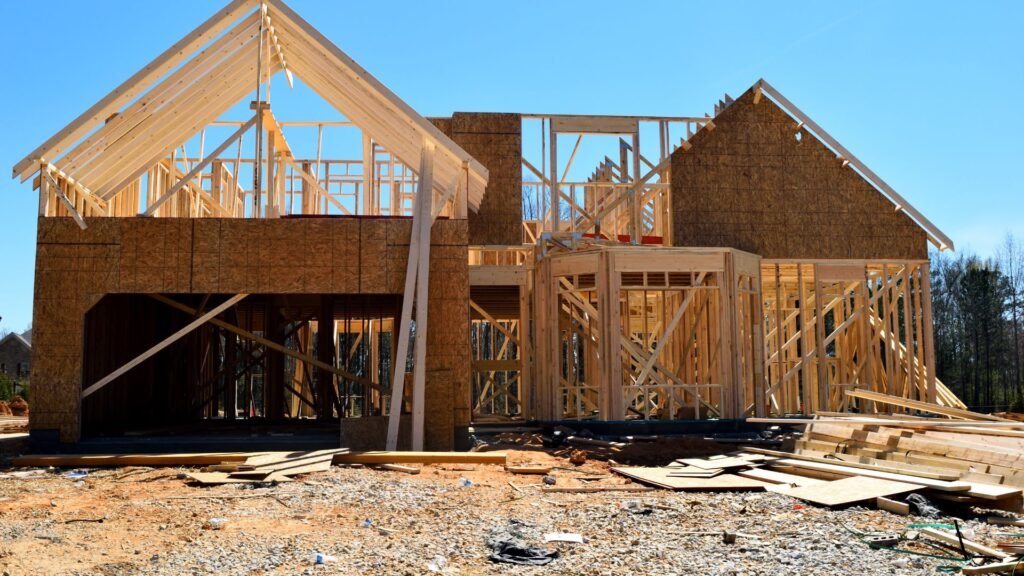
Ways To Save On Your New Build
Building a new home in New Zealand is a big investment, but there are smart ways to keep costs under control without sacrificing quality or comfort. If you plan carefully and make strategic choices, you can reduce your overall spend while still ending up with a house you’ll love living in. Below are some practical tips to help you save money during your build.
Choose A Standard Plan Over A Custom Design
One of the easiest ways to lower building costs is to pick a standard home design offered by your builder. Custom designs often require extra planning, specialized engineering, and unique materials, which can drive up the price quickly. Standard plans are tested, streamlined, and usually come with fewer surprises. If you want a personal touch, you can still make small modifications, like changing the kitchen layout or adding a deck, without going for a fully custom design.
Source Cost-Effective Materials Without Compromising Quality
Material selection has a huge impact on your budget. Imported or rare finishes can add thousands of dollars to the overall cost. Instead, focus on locally available, durable materials that offer a balance between quality and price. For example, using engineered stone for benchtops instead of natural stone can save you money while still providing a stylish look. Always ask your builder or supplier for alternatives that deliver the same performance at a better cost.
Stage Your Build And Add Extras Later
You don’t need every upgrade on day one. By staging your build, you can move into your new home sooner and add extras later as your budget allows. Features like landscaping, fences, or high-end appliances can wait until you’ve settled in. Think about what’s essential for move-in, like flooring, bathrooms, and kitchen fittings, and what can be added over time. This approach not only spreads out the cost but also gives you time to decide what upgrades are truly worth it.
Get Multiple Quotes From Builders
Never settle on the first quote you receive. Different builders can have very different pricing structures, even for similar designs. Request at least three detailed quotes and compare what’s included. Pay attention to exclusions and hidden fees, such as site preparation or project management costs. Having multiple quotes also gives you room to negotiate, which could save you thousands.
Work With A Reputable Builder Who Has Supplier Relationships
Choosing the right builder can make a big difference in how much you spend. Experienced builders often have strong relationships with suppliers, which means they can access bulk discounts on materials. These savings are often passed on to you. A reputable builder will also be more transparent about costs and less likely to hit you with unexpected add-ons. Always check reviews, references, and credentials before making your decision.
Practical Tip To Keep Costs In Check
Think about what you really need on move-in day versus what can wait a year or two. Essentials like a functioning kitchen, bathrooms, and secure access should always come first. Extras like a pergola, solar panels, or high-end landscaping can be added later when your budget allows. This mindset helps prevent cost blowouts and keeps your project financially manageable.
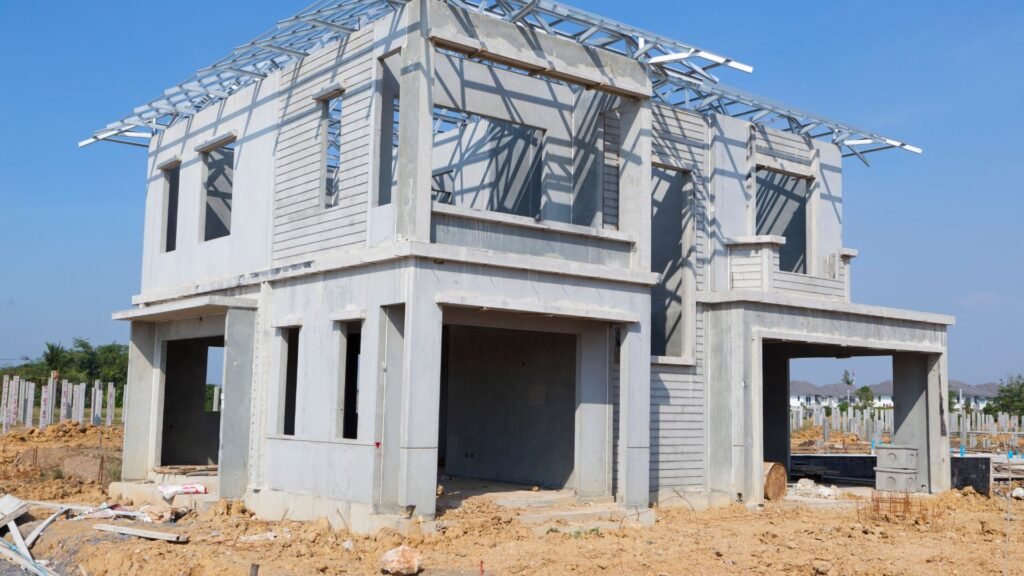
Financing A New Build In NZ
Building a new home in New Zealand is exciting, but it also comes with unique financial steps compared to buying an existing property. Understanding how new build financing works will help you budget more accurately and avoid unexpected surprises along the way.
Overview Of New Build Mortgages And Loans
When it comes to financing, most people use a new build mortgage or construction loan. Unlike a standard home loan, where the bank pays out the full amount upfront, a construction loan is released in stages as the build progresses. This staged approach reduces risk for both the lender and the borrower. It also ensures that funds are only released once specific milestones, such as laying the foundation or completing the roof, have been signed off.
How Banks Treat New Builds Differently From Existing Homes
Banks look at new builds differently because of the added risk involved in construction. While existing homes already have a fixed value, new builds rely on estimates, plans, and future completion. Because of this, lenders often require more paperwork, including detailed building contracts, cost breakdowns, and council consents. They may also insist on progress inspections to confirm each stage is completed before releasing the next payment.
Deposit Requirements And Staged Payments
For most new builds in NZ, banks require a deposit of at least 10–20% of the total build cost, although this may vary depending on your financial situation and the lender’s policies. Payments are usually made in stages, commonly called “progress payments.” For example:
- Deposit paid upfront to the builder
- First payment after foundations are poured
- Next payment after framing and roof are completed
- Final balance once the build is finished and code of compliance is issued
This staged process helps keep the builder funded throughout the project while protecting the homeowner from paying everything upfront.
Government Schemes Or Grants That May Help
If you’re a first-time buyer, you may qualify for support through government schemes. The First Home Grant can provide up to $10,000 per person ($20,000 for a couple) when building a new home, as long as eligibility criteria are met. In addition, KiwiSaver members may be able to withdraw savings to boost their deposit. These schemes can make a big difference in managing the overall cost of your new build.
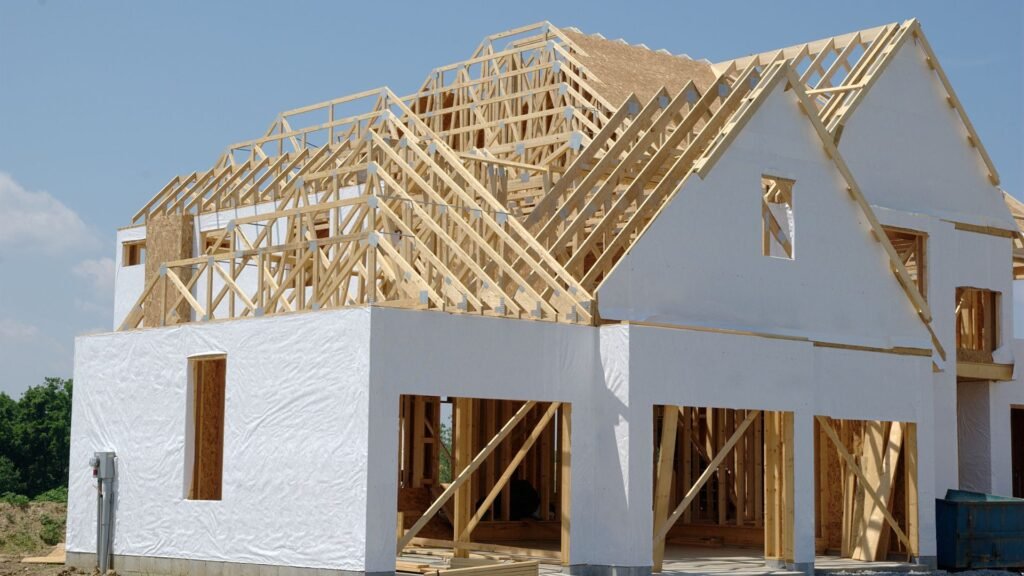
Is It Cheaper To Buy Or Build In NZ?
When weighing up the choice between buying an existing home or building a brand-new property, cost often becomes the biggest deciding factor. In New Zealand, the average cost of building a new home in 2025 sits between $2,500 and $4,500 per square metre, which means a standard 150m² home can cost anywhere from $375,000 to $675,000, excluding land and hidden expenses. On the other hand, the median house price in NZ hovers around $780,000 to $850,000 depending on the region, with cities like Auckland and Wellington being higher and regional towns slightly more affordable.
At first glance, buying an existing property may seem cheaper, especially when you factor in the convenience of moving in immediately. But building a new home often gives you better long-term value through customization, energy efficiency, and lower maintenance costs.
Pros Of Building New
- Customization: You design the layout, style, and finishes to suit your lifestyle.
- Energy Efficiency: New builds must meet modern building standards, meaning lower power bills and more sustainable living.
- Lower Maintenance: Everything is brand new, so you won’t be paying for big repairs in the first few years.
- Healthy Homes Standards: Better insulation, ventilation, and heating make your home more comfortable.
Cons Of Building New
- Upfront Costs: Land, consents, and construction can quickly add up.
- Timeframe: It can take 12–18 months or more from planning to completion.
- Budget Risks: Unexpected costs like site preparation or material shortages can push the budget higher.
Pros Of Buying An Existing Home
- Immediate Move-In: You can settle and move in as soon as the purchase is complete.
- Established Locations: Many existing homes are in central or desirable suburbs where land is no longer available.
- Potential Bargains: With the right negotiation, you may secure a property below market value.
Cons Of Buying An Existing Home
- Lack Of Customization: You’ll need to compromise on layout, design, and finishes.
- Higher Maintenance: Older homes may require costly repairs or renovations.
- Less Energy Efficient: Many existing homes don’t meet modern standards, leading to higher power bills.
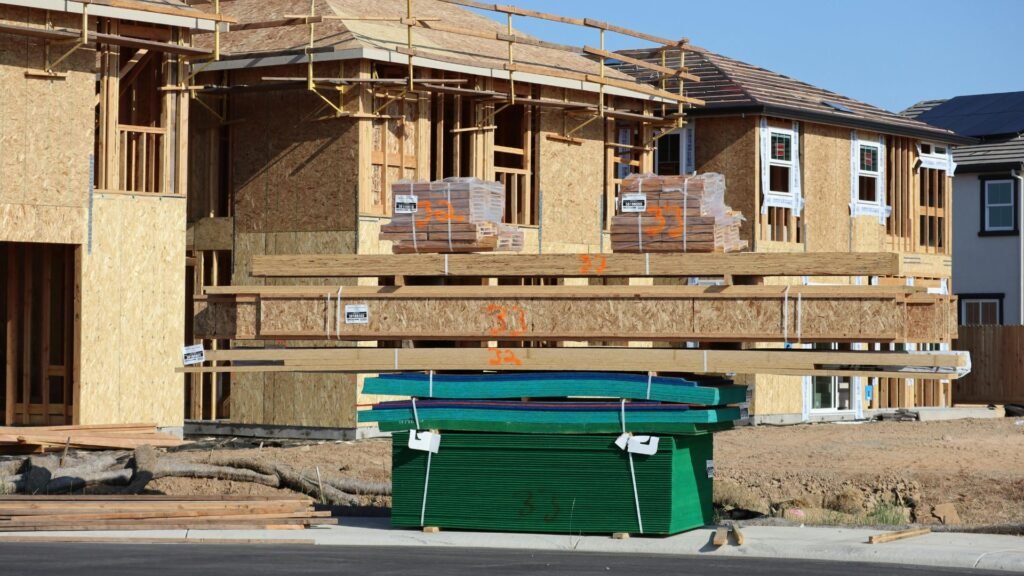
Tips For Working With Builders
Building a new home in New Zealand is a major financial and emotional investment, so choosing the right builder can make all the difference. The relationship you have with your builder will directly impact the quality of the home, the total cost, and how smooth the process feels. Below are key tips to help you navigate this step with confidence.
How To Choose The Right Builder
Selecting the right builder goes beyond comparing quotes. Start by looking for builders who are registered with the Master Builders Association or Licensed Building Practitioners in New Zealand. Membership in these groups often means higher standards and accountability. Look at their portfolio to see if they have experience with homes similar to what you want. A builder who specializes in modern townhouses may not be the best choice for a rural lifestyle block or a high-end architecturally designed home.
It’s also worth considering communication style. If a builder responds quickly, explains things clearly, and shows genuine interest in your project, those are good signs. Remember, you’ll be working closely with this person for months, so choose someone you trust and feel comfortable with.
Questions To Ask Before Signing A Contract
Before signing anything, take the time to ask direct questions. Some key ones include:
- What is included in the quoted price, and what is excluded?
- How do you handle unexpected costs or delays?
- What warranties or guarantees are provided?
- Can I see a detailed timeline for the build?
- Who will be my main point of contact throughout the project?
The answers to these questions will help you understand how transparent the builder is and prevent unwanted surprises later. Don’t be afraid to ask for clarity, if something feels vague, push for details.
Importance Of Checking References And Previous Projects
A builder’s track record speaks volumes. Always ask for references from recent clients and, if possible, visit completed homes in person. Speaking to past clients gives you real insight into whether the builder stayed on budget, kept to timelines, and communicated well.
Photos and testimonials on a website are helpful, but nothing compares to seeing the craftsmanship up close. Checking references also helps you confirm whether the builder is reliable or if issues like cost blowouts or poor workmanship are common.
Avoiding Cost Blowouts Through Clear Contracts
One of the most common issues people face during a new build is unexpected cost increases. To protect yourself, insist on a fixed-price contract where possible. A fixed-price contract clearly outlines what is included in the build and minimizes the risk of budget surprises.
Make sure the contract covers:
- Specific materials and brands to be used
- Start and completion dates
- Payment stages and amounts
- Handling of variations or changes to the plan
The more detailed the contract, the less room there is for misunderstandings. Always review the agreement carefully, and consider having a lawyer go through it before you sign. Clear documentation gives you peace of mind and keeps the project on track.
Curious about ways to save on your build without cutting corners? Learn more about our practical tips and trusted builder recommendations by visiting Builders Omaha.
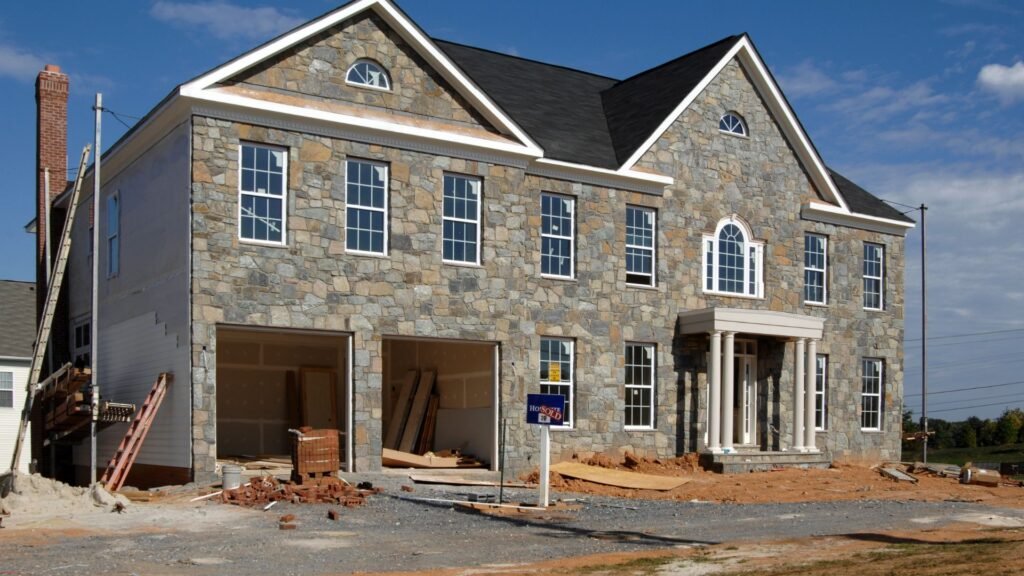
FAQs: About New Build Cost In NZ
How much does it cost to build a new home in NZ in 2025?
The cost typically ranges from $2,500 to $4,500 per square metre, depending on region, materials, and design. A 150m² home could cost between $375,000 and $675,000.
What is the average cost per square metre to build in NZ?
On average, costs start at around $2,500 per square metre for standard builds and can go beyond $4,500 per square metre for high-end custom homes.
Is it cheaper to build or buy a house in NZ?
Buying an existing house can sometimes be cheaper upfront, but building allows you to customize your home and often results in better long-term energy efficiency.
What hidden costs should I consider when building?
Hidden costs include council consent fees, site preparation, utility connections, landscaping, driveways, and project management fees.
Do building costs vary by region in NZ?
Yes, regions like Auckland and Wellington tend to have higher labour and land costs compared to smaller cities such as Hamilton or Christchurch.
How can I save money on my new build?
Choose a standard design over a custom plan, get multiple builder quotes, stage optional extras, and use cost-effective but durable materials.
What factors influence new build costs the most?
Key factors include location, land preparation, house size, design complexity, choice of materials, and labour availability.
How does financing work for a new build in NZ?
Banks often provide construction loans or new build mortgages with staged payments tied to project milestones like foundations, framing, and completion.
What should I look for when choosing a builder?
Check references, view past projects, ensure they’re registered, ask about fixed-price contracts, and clarify inclusions to avoid cost blowouts.
Are there government schemes or grants for new builds?
Depending on your situation, you may qualify for First Home Grants or KiwiSaver withdrawal options to support your new build project.
Conclusion
Building a new home in New Zealand is an exciting but complex journey, and understanding the full cost is the first step to making smart decisions. On average, new build costs in NZ range between $2,500 and $4,500 per square metre, with the final price shaped by factors such as location, land preparation, design, materials, and labour availability. Beyond the obvious construction expenses, many homeowners overlook hidden costs like council fees, utility connections, landscaping, and project management, which can quickly add up. The good news is there are practical ways to save, from choosing a standard plan over a custom design to comparing quotes from multiple builders and prioritizing must-have features over extras that can wait. Careful planning, thorough research, and transparency with your builder will help you stay on budget and avoid costly surprises. If you’re ready to start planning your new build in NZ, talk to a trusted builder and get a clear quote today to turn your dream home into reality with confidence.

